Radio Interview: Iran Peace Approach
“There is no reason to go to war with Iran. One of the problems we have with the narrative is that even those who are pro diplomacy supporters still do that in a paradigm of the good ‘us’ versus the bad ‘them’…. We need to get beyond that narrative and figure out how to improve … Read more
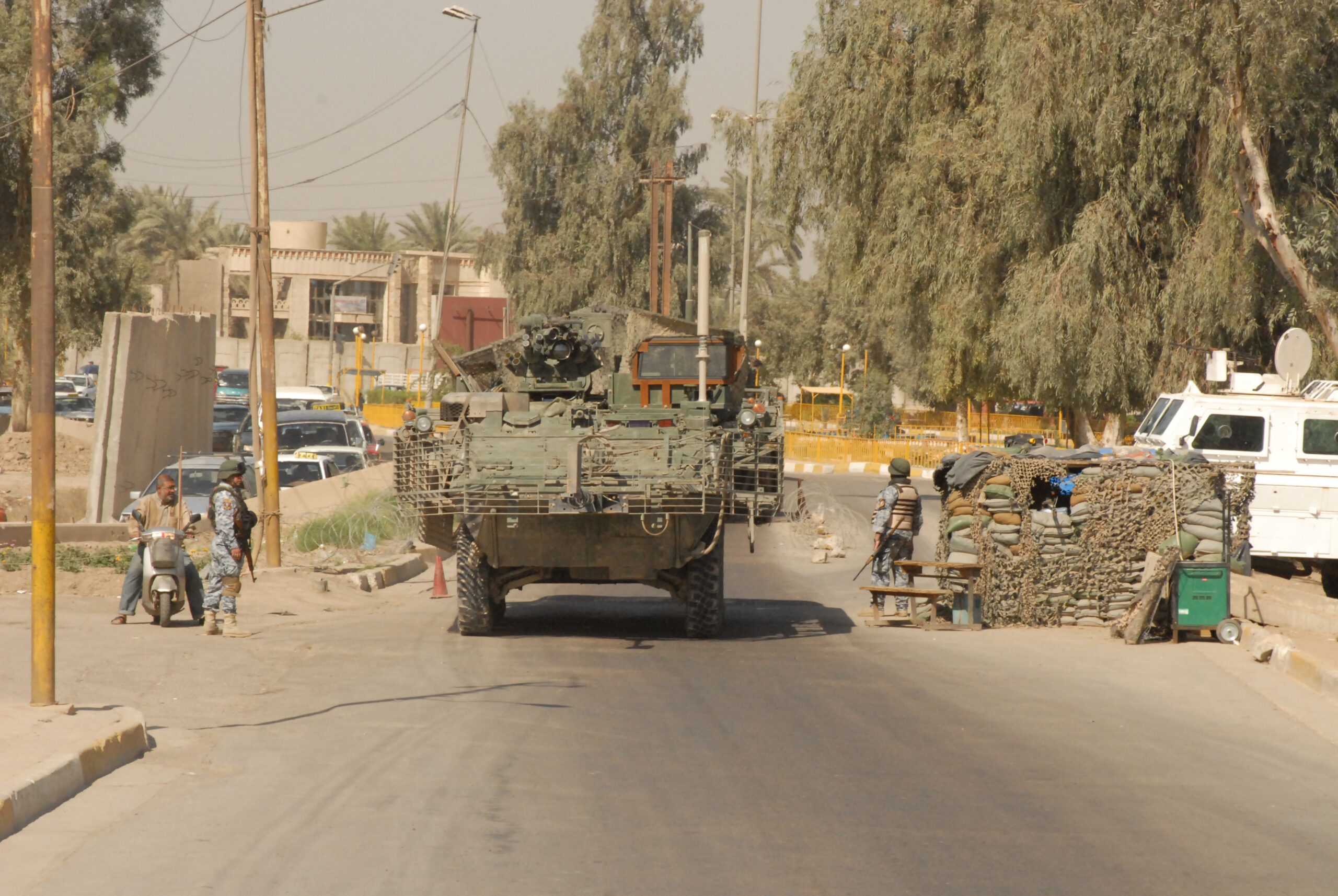
How Feelings Make Military Checkpoints Even More Dangerous for Civilians in Iraq
An average of one Iraqi civilian was killed at a coalition checkpoint each day between 2006 and 2007.
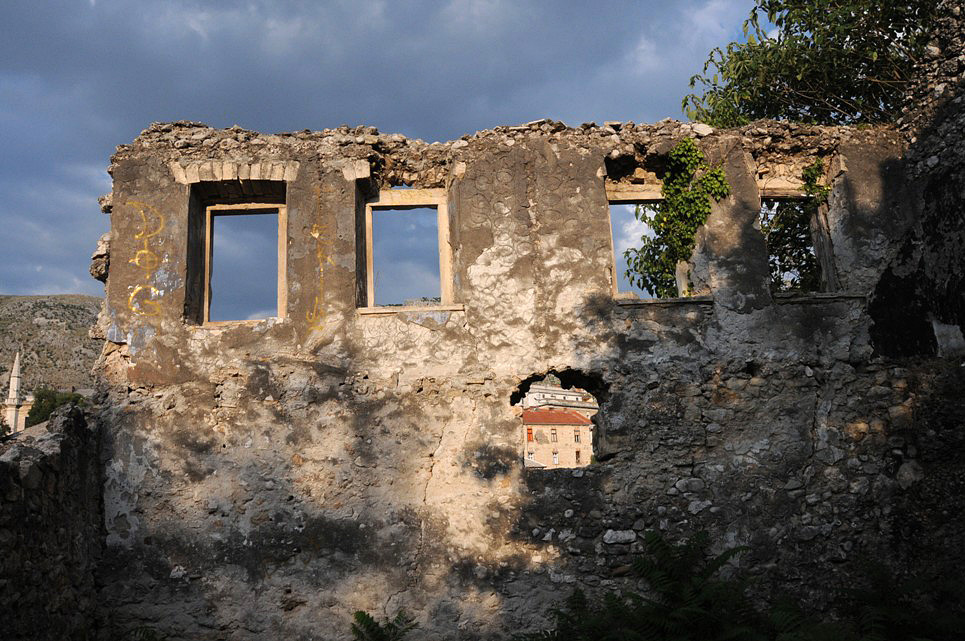
Resisting Exclusionary Nationalism During the Bosnian War
The city of Tuzla was able to resist exclusionary nationalist forces during the Bosnian War due to its identity formation from 1878 to 1990 as a “multi-ethnic working class society with strong anti-fascist, anti-nationalist ideals.”
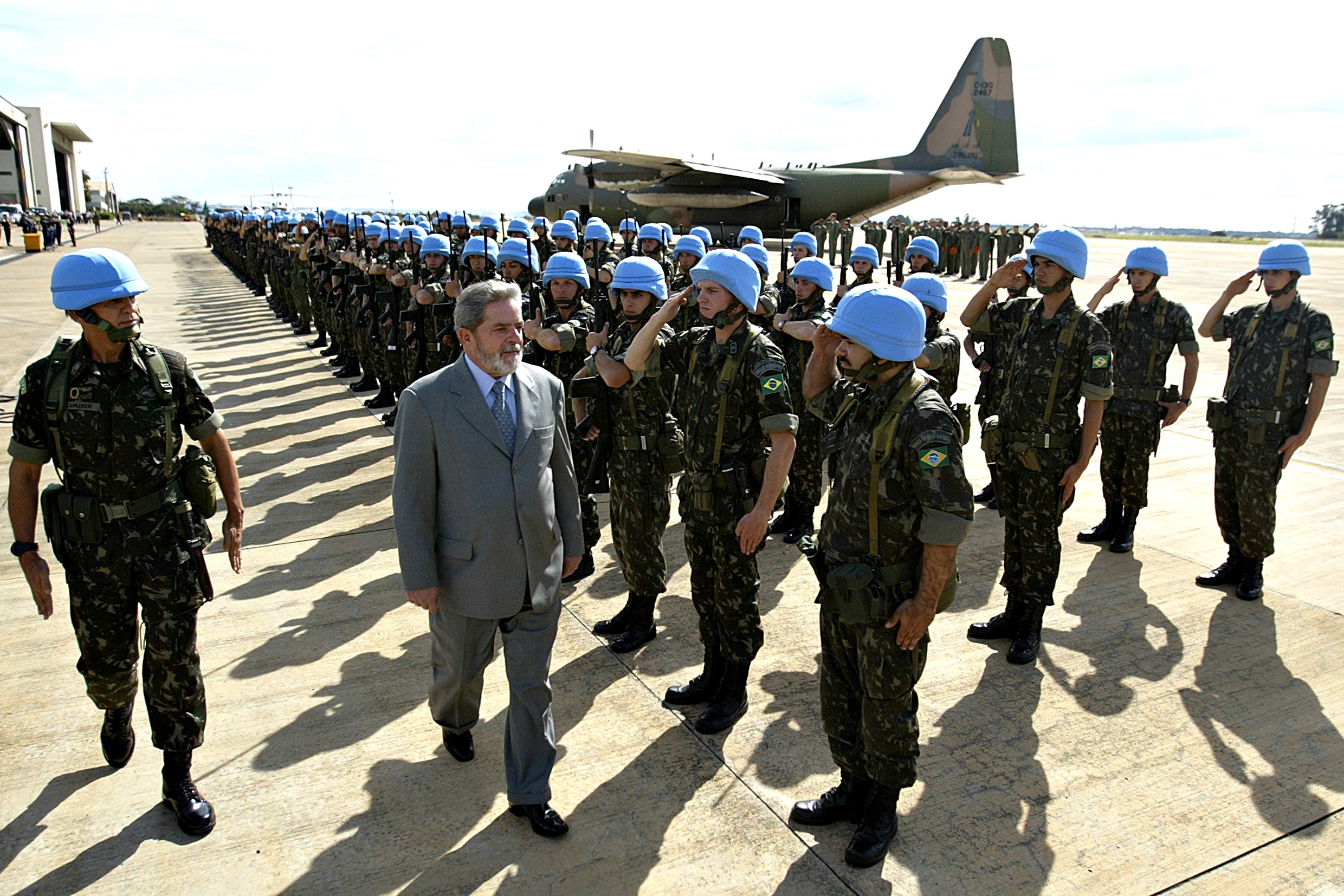
The Unintended Consequences of UN Peacekeeping’s Use of Security Contractors
The UN’s heavy reliance on security contractors in the Democratic Republic of the Congo (DRC) results in more money for institutions and groups that are perceived as corrupt and/or sources of insecurity for many Congolese people.
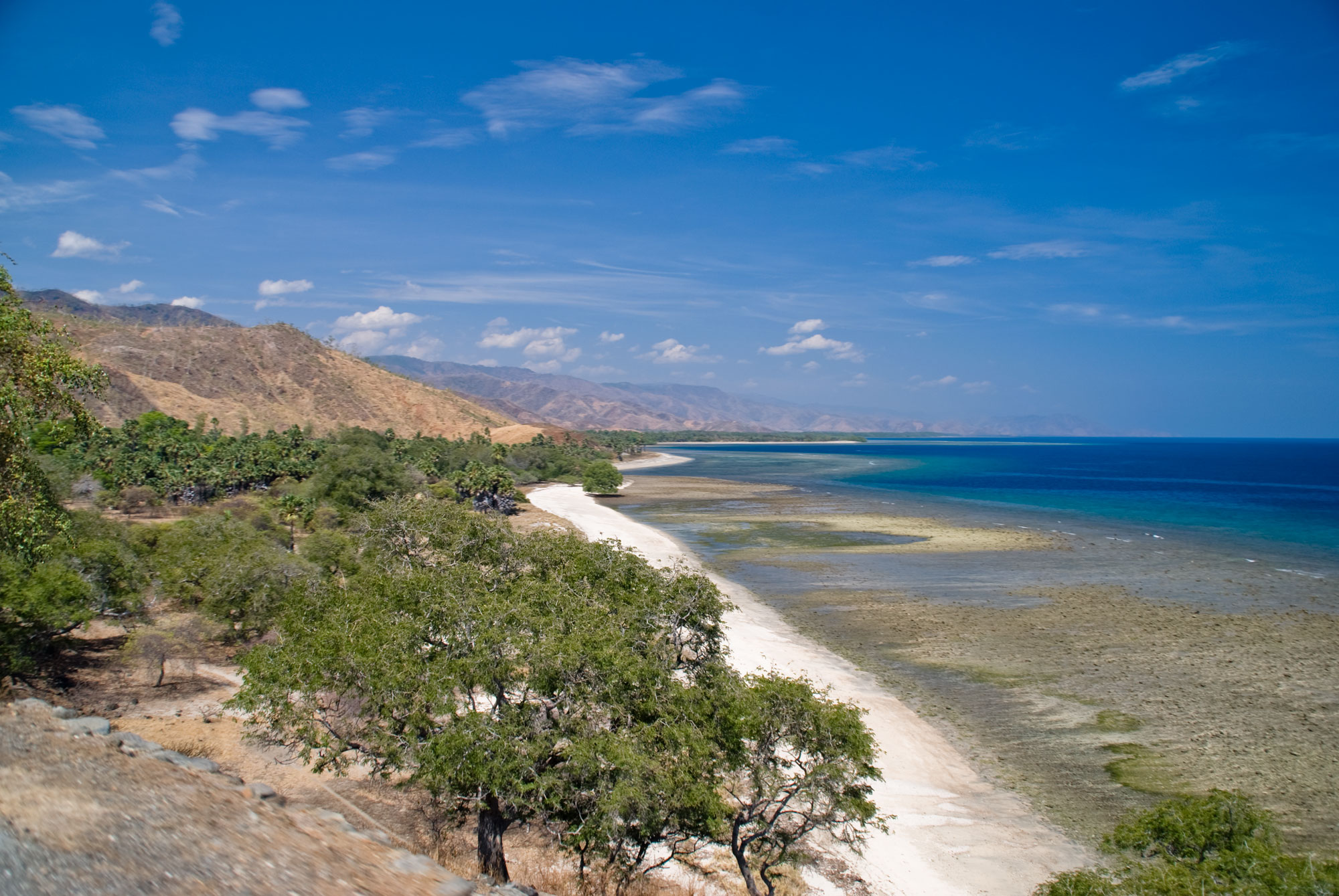
“Uncivil” Society Organizations in Bougainville and Timor-Leste: Subverting Transitional Justice in Post-Conflict Settings
In Bougainville and Timor-Leste, uncivil society groups were composed of ex-combatants and/or marginalized communities who felt that they were excluded from the peace and reconciliation process.
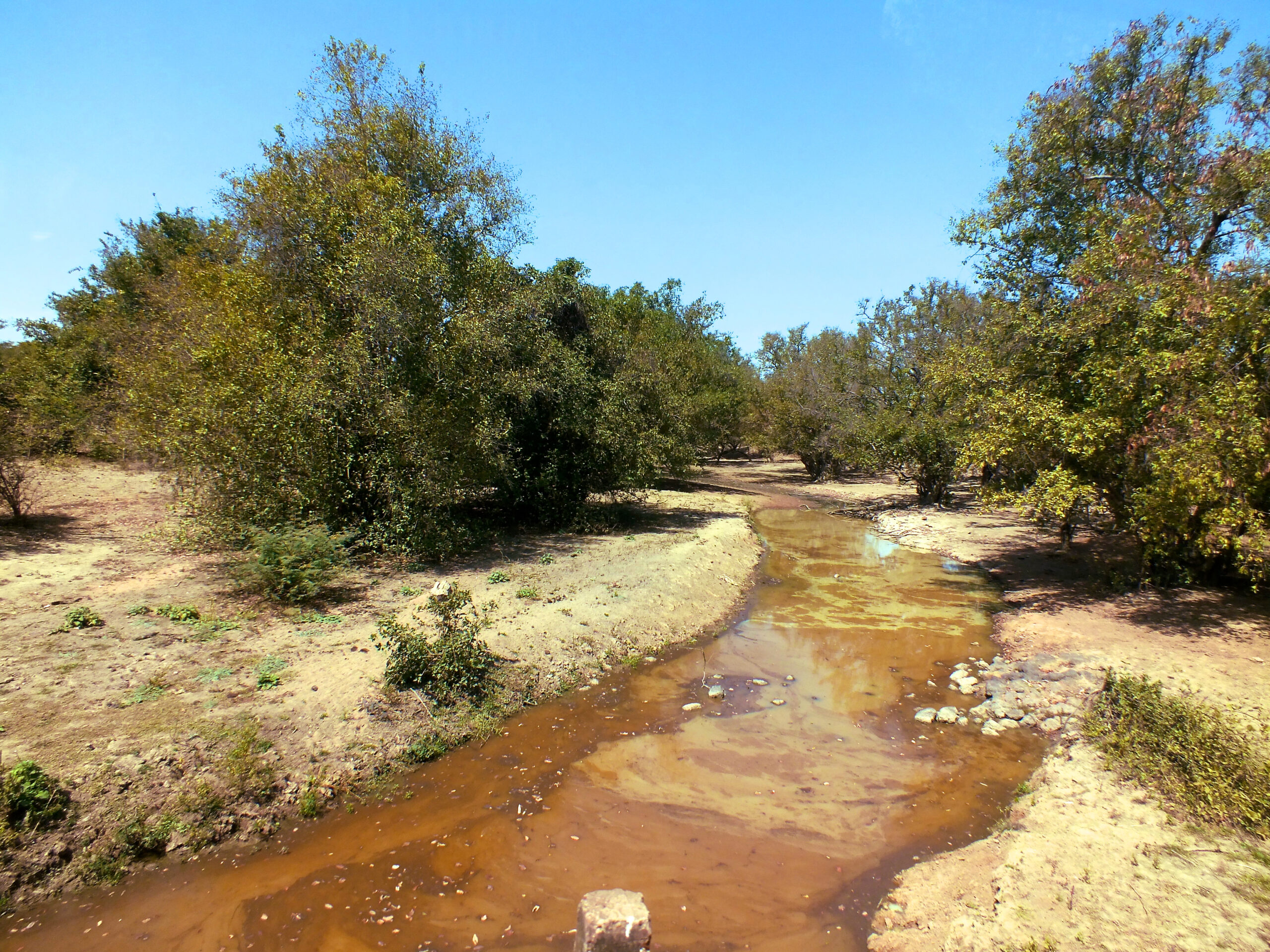
Traditional Governance and the Maintenance of Peace in Sub-Saharan Africa
Traditional governance, including local chiefs, kings, or conflict resolution mechanisms, can play a powerful role in maintaining peace if it is integrated with the public administration of the state (a scenario called “institutional hybridity”).
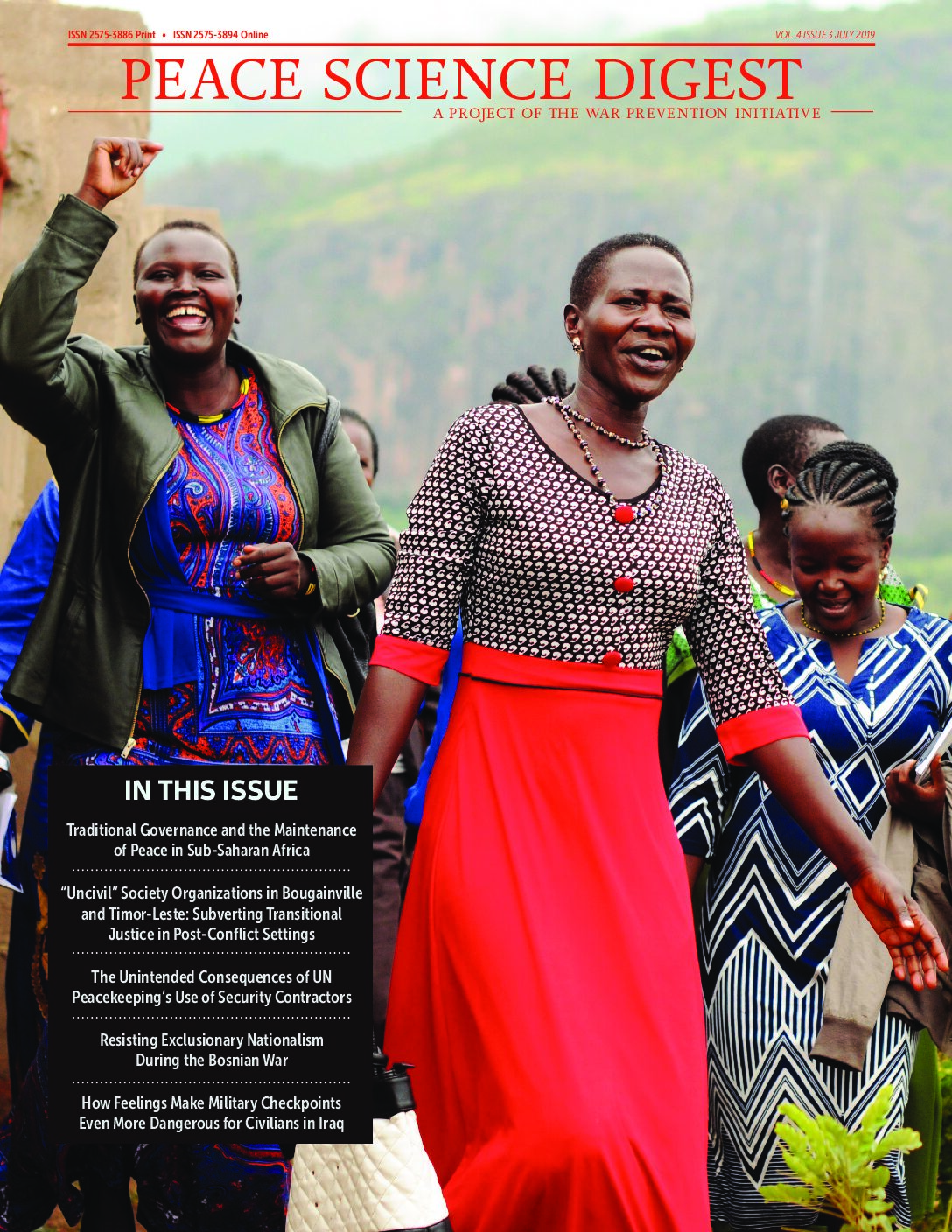
Volume 4, Issue 3
In this issue, we examine a set of articles with a great deal of regional diversity — two articles focus on peacebuilding or peacekeeping in Africa, one looks at resistance to exclusionary nationalism in Bosnia (Europe), another explores “uncivil society” in Bougainville and Timor-Leste (Asia-Pacific), and, finally, one considers military checkpoints in Iraq (Middle East). These articles heighten our awareness of the complexities and challenges involved in peacebuilding after war. All the more reason to avoid war in the first place.

War Prevention Initiative: “Violent hate speech gives rise to conditions for violence at home and war abroad”
PORTLAND, OR – The War Prevention Initiative (WPI) condemns the vicious and racist attacks by U.S. President Donald J. Trump on U.S. Congresswomen Alexandria Ocasio-Cortez, D-N.Y., Ilhan Omar, D-Minn., Ayanna Pressley, D-Mass., and Rashida Tlaib, D-Mich.

War Prevention Initiative Op-Ed addressing German audience: Stand up against U.S. drive toward war with Iran.
In his recent commentary published by the German Rubikon magazine, War Prevention Initiative Executive Director Patrick Hiller argues that Germany and other European nations need to behave independently at the threshold of war, be courageous and assume a moral leadership beyond Iran, embracing global stability and security. There must be no “coalition of the willing” … Read more
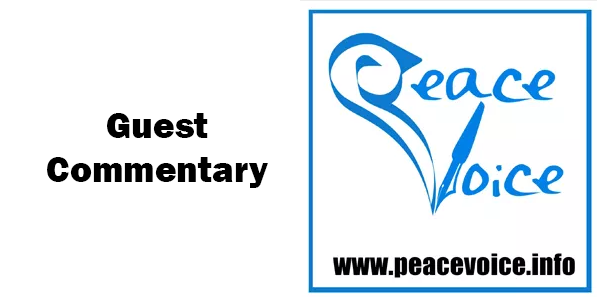
Provoking World War III with Iran and a U.S. history of provocation
Published on Monday, July 01, 2019 by PeaceVoice Provoking World War III with Iran and a U.S. history of provocation by J.P. Linstroth1220 words In the history of the United States and its history of interventionism, the recent attacks on oil tankers in the Gulf of Oman seem to be foreboding and ominous signs of what may … Read more

“Iranians are not our enemies”
When foreign policy as we know it isn’t working, creative citizen diplomacy can step in to humanize the real people who would be most impacted by war. Follow the link bellow to read the entire commentary by War Prevention Initiative Executive Director Patrick Hiller on Foreign Policy in Focus: Iranians Are Not Our Enemies
